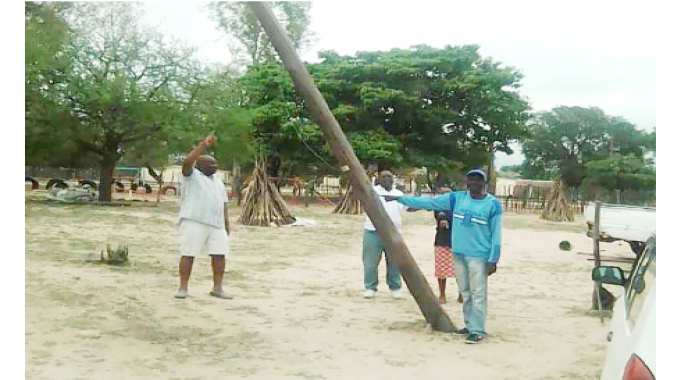A time of complex unanswered questions

I hope I find you well and in good health. This is a time riddled with complex unanswered questions. Covid-19 has left the great scientists and policy makers scratching their heads for lasting solutions to no avail. The new variants that are being discovered are making the dilemma worse.
Some patients who have recovered from Covid-19 have been experiencing symptoms, even nine months after being PCR swab negative. The terms “post Covid-19 syndrome,” “long Covid” and “long haulers” have been coined. Psychiatrists attribute it to post traumatic stress disorder (PTSD), because investigations do not yield supporting results. PTSD is a psychiatric disorder that may occur in people who have experienced or witnessed a traumatic event such as a natural disaster, a serious accident, a terrorist act, war/combat, or rape or who have been threatened with death, sexual violence or serious injury. Either way the symptoms are still a reality Covid-19 survivor’s experience.
Most people who have Covid-19 expect their symptoms to disappear after a few weeks, but some continue to experience effects months after recovery.
Dr. Fidaa Shaib, a pulmonary expert at Baylor College of Medicine, says people who suffer from persistent symptoms after recovering from the acute illness, also known as “long-haulers,” are often healthy prior to getting infected with Covid-19.
This can occur in up to 10% of those infected with the virus. This is not only peculiar to Covid-19, the virus that causes chickenpox and shingles, may harbor the pathogen in their nervous systems for years.
Survivors of previous coronavirus infections, including the SARS epidemic of 2003 and the Middle East respiratory syndrome (MERS) outbreak of 2012, have demonstrated a similar constellation of persistent symptoms, reinforcing concern for clinically significant sequel of Covid-19.
Common long-term Covid-19 symptoms include:
· Shortness of breath
· A lingering cough at times with mucus or phlegm
· Chest pain and heart palpitations
· Dizziness and light-headedness
· Fatigue with limited ability to exercise or even perform activities of daily living
· Joint and muscle pain
· Loss of taste and smell
· Sleep disturbances with insomnia and sleepiness during the daytime
· Gastrointestinal symptoms, such as difficulty swallowing, irritable bowel syndrome (IBS) and indigestion.
· Depressed mood and anxiety
· Fever
Some doctors are reporting rashes tied to Covid-19, including purple or blue lesions on children’s toes and feet. Researchers are looking into these reports so they can understand the effect on people who have Covid-19.
Some people who have suffered from long Covid symptoms say they are finding relief after getting vaccinated. Long Covid is still not well understood by doctors. One theory, according to Yale immunologist Akiko Iwasaki, is that the vaccines help eliminate the so-called “viral reservoir,” where the virus may still be lingering in the body and causing chronic symptoms.
Physical activity and ambulation should be recommended to all patients when appropriate. Recovered patients may have persistently increased cardio-metabolic demand, as observed in long-term evaluation of SARS survivors.
Serial clinical and imaging evaluation with electrocardiogram and echocardiogram at 4–12 weeks may be considered in those with cardiovascular complications during acute infection, or persistent cardiac symptoms.
The World Health Organisation estimates about 1 in 10 Covid patients experience persistently ill health 12 weeks after getting the virus. Researchers at the University of Washington published data in February that found a third of patients reported ongoing symptoms, including fatigue, shortness of breath and sleep disorders.
Treatment of long Covid remains symptomatic, some patients have benefited immensely from undergoing psychological assessment and therapy for post-traumatic stress disorder.
Prevention is better than cure for Covid-19;
· Hand washing for at least 20 seconds each time, with soap and water.
· Use an alcohol-based sanitizer with at least 60% alcohol if you don’t have soap and water handy.
· Physical distancing at least 1 metre away.
· Wear a (cloth) face mask in public places.
· Avoid people who are sick. Avoid gatherings.
· Don’t touch your eyes, nose, or mouth unless you’ve just washed your hands.
· Regularly clean and disinfect surfaces that you touch a lot.
· Get vaccinated.
A new school of thought has been discovered; it is that the mitochondria within one’s cells are functioning at lower capacity in long haulers. Mitochondria are an important part of our cells because they generate energy from food.
There are two products that assist recovery:
*Niacin (vitamin B3),
*Coenzyme Q10 (CoQ10).
Both compounds act as co-factors within the mitochondria to enhance energy production. This promotes normalisation of cellular function and clinical improvement.
Natural sources of Coenzyme Q10 and niacin include meat – beef, chicken (breast), fatty fish and pork (lean/tenderloin).
Organ meat has been seen to be a good source; beef and chicken heart and liver. Fatty fish examples include like trout, mackerel, sardines, salmon and tuna.
Vegetable sources include soybeans, mushroom, potatoes (baked), peas, broccoli, avocado and peanuts. Brown rice and whole wheat products are starches rich in niacin.
Supplements can be bought in pharmacies. The Niacin dose is one capsule/tablet twice daily after food for 7 days, then 2 tablets twice daily after food. You may need to take it for 2 – 3 months. The dose of CoQ10 is 100mg once daily after food.
Till next week, stay safe.
Contact Dr T Simango on [email protected]








Comments